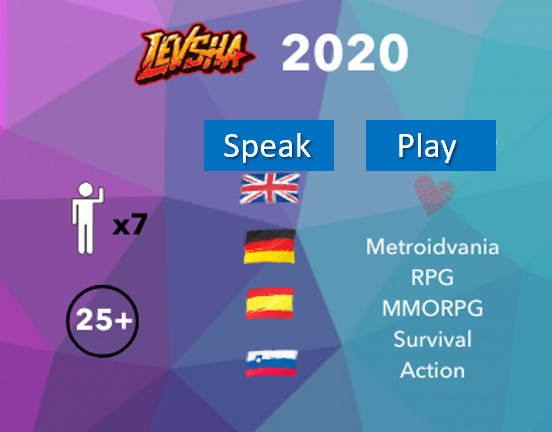Project managers in a localization studio
There’s no shortage of articles about video game localization. If you collected all materials explaining how to prepare your game for translation and lined up the words in one straight line, you’d reach all the way to the Moon and back. We’ve read some useful texts about video game localization, highlighted the most popular points you need to consider in order to improve the localization, and realized that 99% of new clients do the exact opposite. And yet, their products are somehow localized, and the localization quality is usually decent. How is that possible? The answer is that behind every localization request, deadline, and accepted file, there’s a localization manager wondering why nobody ever reads those useful guidelines, with everyone doing things their own way instead.
At the moment, seven localization managers work at Levsha. Since 2009, the studio has had five managers on average. Depending on the studio’s workload and the necessity for expanding production resources, this number can vary.
Our managers:
Our managers:

The downsides of the job
The biggest cons of our work are the same as in any other communication-based field. Doing our job can be tricky if managers on the client’s side take a day or longer to get back to us. Any project comes with plenty of small, simple questions that require a yes-or-no answer. Even these questions can stall the process, which can be a bummer when we need to wait for the answer for quite a while.
A plethora of deadlines, frequent and unpredictable requests to make some small changes in a file we’ve already delivered, constant concentration on several projects… You eventually get used to all of that, but it takes time to prevent it all from getting on your nerves.
About acceptance
It always takes a while to accept you won’t be able to reach absolute perfection. The manager’s job is to find an optimal solution while taking a particular project’s conditions into account, and that solution won’t always be ideal.
Max & Min
The largest projects we’ve worked on contained 500 to 800 thousand words. The smallest ones were up to 100 words.
What helps us do our job
The availability of well-prepared reference documents. That is, not just a heap of game-related materials we need to rummage through in order to find something actually useful. What’s needed is a well-structured booklet, even just a brief one, that helps us understand how the developer sees their game.
A good understanding of the work processes from the manager on the other side. In this case, there’s always a solution for every problem. It also helps if we get timely responses to questions and the Q&A; sheets are handled properly. The developer should have a basic understanding of what localization is. They should also realize there are other languages in the world, apart from the one their game is created in. The text exported from the game should be organized properly.
A test version of the game, direct communication with the developer, working in the same time zone or at least not too far apart, being able to perform quality assurance for the translation… All of these factors coming together in a single project is a rare occasion, but at least one of these factors can help us run things more smoothly.
About valuable skills
You need to be able to communicate. You can’t work as a project manager without that. It’s always clear at once whether the person can communicate properly.
Balancing professionalism against chill. You need to do your job and do it well, but going crazy over some imperfections in small and urgent translation requests is a no-no.
Applied experience is important. Without it, even the smallest tasks can require a lot of time and effort. Once you have a grasp on how things work, you’ll find your job so much easier.
Know your team. Choosing the outsourcers you work with is the key to success. You need to be able to sort out your priorities, accept mistakes without any fuss, and fix them as quickly as possible.